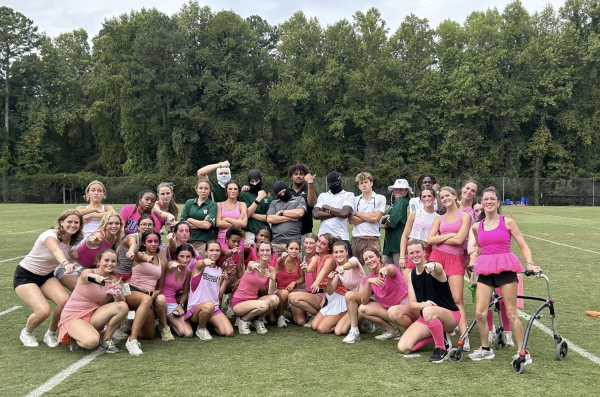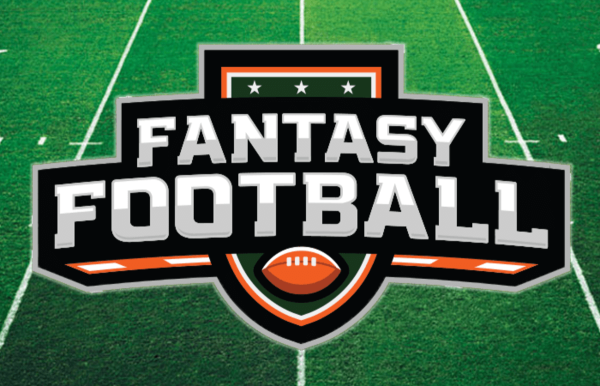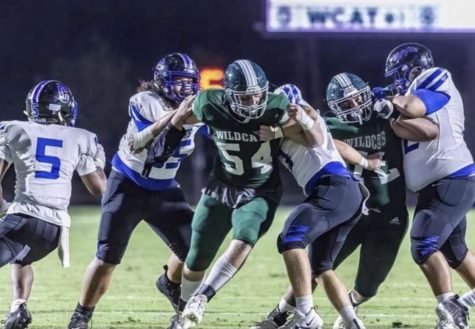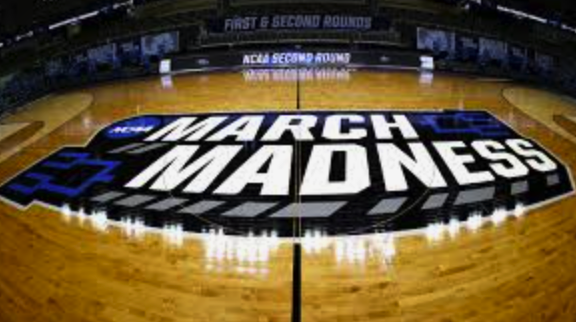Fantasy Football unites students, families
Since the invention of fantasy football in 1962, the game has spread worldwide to over 30 million players in the US and over two million players in Canada. Among those players are many avid students at Westminster who love the game of football.
“I think it’s a fun way to compete against your friends and family,” said freshman Will Schramm. “And it’s a fun way to fill your free time.”
The game features users who compete against each other by building virtual “fantasy” rosters from “drafting” real players.
“In fantasy football, you go through a draft where you pick a bunch of players like skills positions, running backs, quarterback, wide receivers, and you get a defense, special teams, and kicker,” said Schramm. “Depending on how they play you get a certain amount of points. You play against somebody and whoever has the most points wins that game.”
In addition, fantasy football boasts many different leagues that have slightly different types of play.
“In most leagues, you draft your players at the beginning of the year and keep them unless you trade or drop them,” said senior Matthew Ramsey. “However, in some leagues you have a cost for each player and can pick a whole new team each week if it’s within your budget.”
The overall system of play appeals to students at Westminster ranging from middle school students to seniors.
“Usually guys sixth grade and up play fantasy football,” said Ramsey. “Some girls play it too.”
Freshman David Edmiston shared similar views with Ramsey.
“Well I think that fantasy football starts as soon as you get a computer really, and I can’t really tell you when you stop playing, but I know a lot of adults,” said Edmiston. “I definitely think its most guys that do it because guys like football.”
Junior Katie McGahan provided an interesting perspective on a girls’ point of view of the game.
“I don’t play fantasy football, but my brother plays, and I’m sure he plays a lot more than he should,” said McGahan. “He makes me check his scores all the time.”
Schramm shared similar thoughts regarding time commitment in the game.
“I play all the [time],” said Schramm. “I mean, you are constantly changing your roster, making it better so you can beat your opponent. I like to sort my roster and leave it alone because I’m starting to overthink things, but I play all the time, whenever I can.”
However, there is disagreement about time – some argue that one of the advantages of fantasy football is that requires very little time commitment, which leads to more players in the game.
“It really doesn’t take too much time because the initial draft is before school,” said Ramsey.
“You know, you don’t really have to find time to play,” said Edmiston. “It’s pretty simple, so it’s a fun thing to do that doesn’t take too much time, and I think that’s why so many people play because it doesn’t take that much time.”
However, Edmiston agreed that the incentive to win fuels willingness to spend more time playing the game.
“In order to win, you are always adjusting your fantasy roster, picking up whoever’s hot, and making trades with friends,” said Edmiston. “It’s a fun thing to do all week.”
For most people, their journey in fantasy football started from a relative or friend who introduced the game to them.
“I found out about fantasy football from my uncle, who I used to play against in elementary school,” said Edmiston. “We had a family league, and it just continued on.”
Schramm also became exposed to fantasy football through family.
“I used to watch games with my cousin when I was younger and he would always tell me about his fantasy lineup,” said Schramm. “So one day I got into his league and I made my first team.”
Eventually, fantasy football spreads out from an individual game to a collaborative and competitive challenge between friends and family.
“I used to just play by myself because a lot of people didn’t play,” said Edmiston. “As soon as [sixth grade started] I only played with friends and family. It’s a fun way to compete with your friends, and act like you are the owner of those players, and you know, it’s fun to beat down on your friends every week.”
The excitement of the game carries onto campus at Westminster and influences school culture.
“I think it brings a little competiveness in class everyday, which is fun,” said Edmiston.
In a way, fantasy football also acts as a bridge that bonds students together and enhances friendships.
“I think in school, it sort of brings people together,” said Schramm. “People that don’t always talk to each other talk to each other about trades and how they are playing.”
“There are definitely times during fruit break that people will try and talk other kids in their league into or out of trades,” said Ramsey.
McGahan has experienced similar moments at school where fantasy football has connected groups of friends.
“I would say like it brings together groups of guys because they have their fantasy group texts and stuff like that and some friendly competition,” said McGahan. “So it brings people together I would say.”
However, both Edmiston and Schramm agreed that fantasy football could also be a negative distraction in school.
“It could get you in trouble if you are playing in class,” said Schramm.
Edmiston also advised against using fantasy football the wrong way.
“In Westminster culture,” said Edmiston, “you might find a pretty good percentage of guys fooling around during class with their fantasy football roster instead of doing schoolwork.”
Nonetheless, friendships created from fantasy football last beyond high school into college. As students travel across the country to different colleges and universities, the bond of fantasy football lasts forever and brings back old memories.
“After graduation, a lot of leagues stay together for the next few years and are a great way to keep in touch with high school friends,” said Ramsey.







